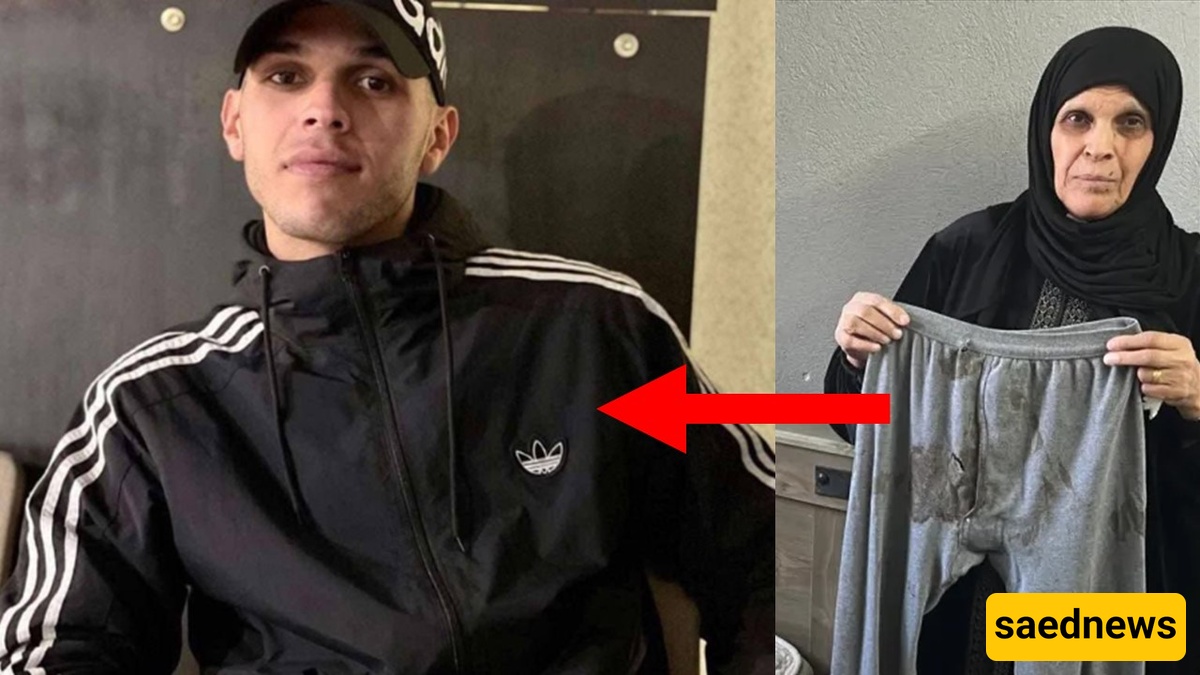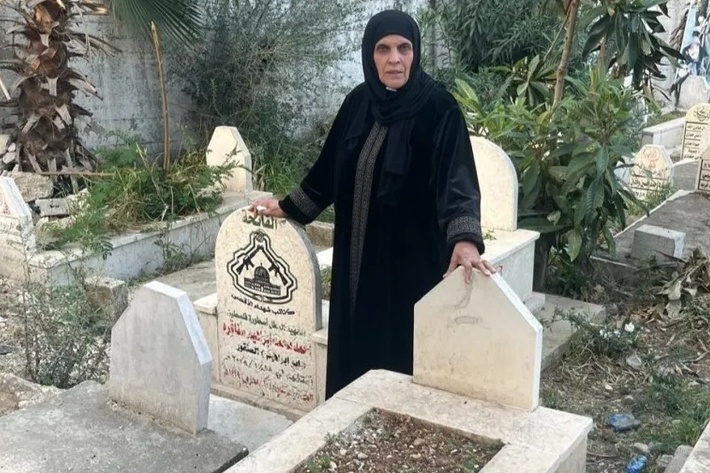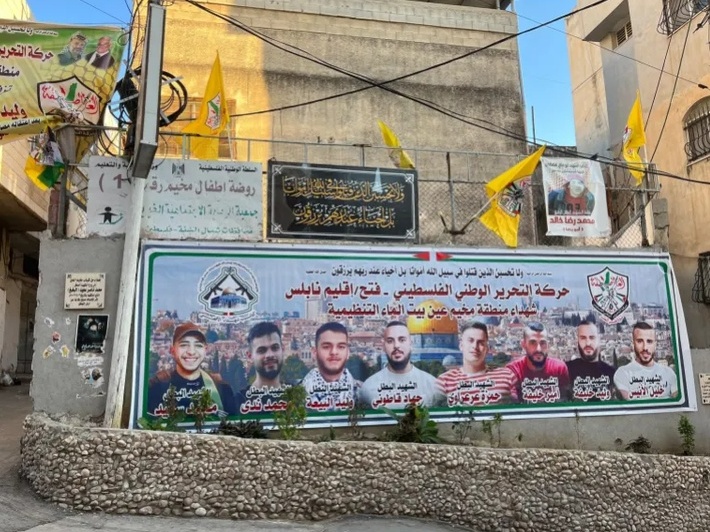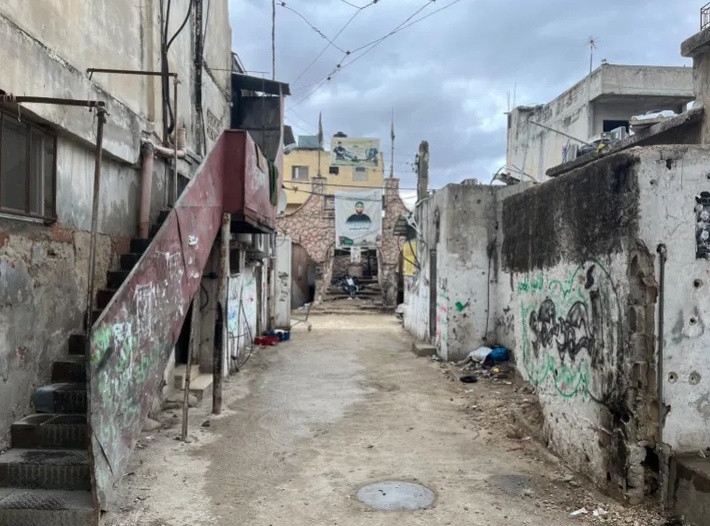SAEDNEWS: In Balata refugee camp, one Palestinian mother has lost all three of her sons to Israeli raids – but the body of her youngest has not been returned, leaving her trapped in endless mourning and grief.

Balata refugee camp, occupied West Bank – In the dimly lit living room of her small home, 67-year-old Jameela Sanaqra sits surrounded by her daughters and grandchildren. Her voice trembles with grief as she recalls the last moments of her youngest son, Mahmoud, who was shot in his bedroom by Israeli commandos on February 27, just a week before his 26th birthday. Soldiers stormed the house, killed him, and then took his body away.
She has not seen him since. She does not know if Mahmoud is buried in an unmarked grave or stored in one of the refrigerated morgues Israel uses to hold Palestinian corpses. She cannot pray at his grave, place flowers, or even say goodbye. “Palestinian mothers carry their sons twice; once in the womb, and then on the day of their burial procession,” Jameela says. “But I was denied even that.”

Jameela Sanqara’s son Mahmoud was shot in their home during an Israeli raid in February, and his body never returned. In Balata camp, an empty grave stands in wait, while rights groups warn that Israel’s policy of withholding the dead inflicts endless torment on Palestinian families.
Jameela has already buried two sons — Ahmad, killed in 2008 at age 20, and Ibrahim, killed in 2006 when he was just 16. For her, Mahmoud was the last piece of hope in a family shattered by loss. The family has prepared an empty grave for him in Balata’s cemetery, beside his brothers. But the grave remains unfilled, a haunting symbol of her suspended mourning.
According to the Palestinian National Campaign for the Recovery of Martyrs’ Bodies, Israel currently holds the remains of more than 2,200 Palestinians killed in the West Bank and Gaza. Some have been kept since the 1967 war. Human rights groups say Israel uses this practice as collective punishment, weaponizing grief to exert control over Palestinian families.
“The occupation authorities impose their control over the deepest feelings of loss, often forcing families to wait endlessly to retrieve the bodies of their children,” the Jerusalem Legal Aid and Human Rights Center states.
Balata is the largest refugee camp in the West Bank. Less than a quarter of a square kilometre in size, it is home to over 33,000 people. Its cramped alleyways are plastered with the faces of martyrs — more than 45 killed since October 7, residents say.
The camp, east of Nablus, has become a flashpoint of armed resistance, making it a constant target of Israeli raids. Roads are destroyed, homes reduced to rubble, and families live under near-daily military incursions.
UNRWA describes Balata as a ghetto, with some of the highest rates of poverty and food insecurity in the West Bank. More than 60% of its residents are children under 18. For families like the Sanaqras, life is defined by survival and mourning.

Residents of Balata refugee camp have transformed their walls into shrines, proudly bearing the faces of Palestinian fighters killed by Israel.
Mahmoud’s life was marked by tragedy from the very beginning. As a child, he lived through the destruction of his family’s home in 2004, demolished by Israeli forces as punishment for Ahmad’s role in resistance. Photographs from the Second Intifada captured Mahmoud’s tears as a five-year-old standing in the rubble.
In 2006, Ibrahim was shot in the leg during an Israeli raid while searching for his older brother. He bled to death at just 16. Two years later, Ahmad was assassinated, and Mahmoud, then a teenager, was pictured crying over his brother’s body. Those images became iconic symbols of Palestinian grief.
Years later, Mahmoud himself was brutally beaten by soldiers in a 2022 raid, a video of which gained international attention.
After his killing in February, Israeli media portrayed Mahmoud as “Balata’s most wanted,” accusing him of arms trafficking and involvement in attacks. His mother insists he was not a fighter. Other residents of Balata, however, say he was involved in the resistance, though Jameela may not have known.
For her, the truth of Mahmoud’s political role is irrelevant. What matters is the dignity of a burial. “Closure is impossible,” she says. “There’s no grave I can go to. It’s torture.”
The family still keeps Mahmoud’s blood-stained clothes. His mattress and carpet remain untouched, soaked in blood. Bullet holes scar the walls of his bedroom. His absence is a daily wound that will not heal.
Psychologist Nesreen Bsharat, who works with mothers in Balata, says the trauma of not being able to bury a child is devastating. “Every mother in the world wants the same thing: to raise her children, see them grow, and bury them when the time comes,” she explains. “When that natural order is disrupted, the pain is unbearable.”

The Balata refugee camp has effectively been under Israeli siege since October 7, 2023
The holding of Palestinian bodies is not new. Israel has admitted to keeping corpses as bargaining chips in potential prisoner swaps, and as deterrence against future resistance. But human rights advocates argue the practice amounts to collective punishment — a violation of international law.
For families like the Sanaqras, it is not just the loss of a son but the denial of closure, the refusal of dignity.
For Jameela, the struggle is personal but also deeply political. “They hurt who’s closest to you to cause the most pain,” she says. “I don’t want anything in life but to be with my sons now.”
Her voice breaks as she adds: “The Palestinian mother wants to raise her children to be doctors, teachers, engineers. She wants them to live. But Israel won’t allow this. They won’t let us live in peace.”
Her words echo across the crowded streets of Balata — a refugee camp where graves are dug before bodies arrive, where mourning is interrupted, and where a mother’s love has been transformed into endless waiting.

